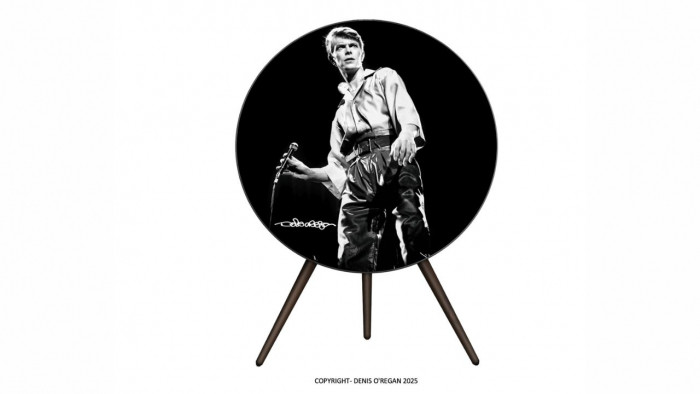"Three-foot flames and melting metal": How I survived the biggest ever fire in space
We spoke to retired astronaut Jerry Linenger about the most dangerous moment of his career


For most of us, a bad day at work means answering a load of awful emails or maybe getting shouted at by your boss. But when you’re an astronaut, a bad day at work can mean you don’t survive the night.
Jerry Linenger, born in Michigan, is one such astronaut. Now 63, Jerry survived the worst fire ever aboard an orbiting spacecraft.
In 1997, he was serving a five-month mission on the creaking Russian Mir space station and while he was up there, he faced constant on-board system failure: the station’s oxygen generator broke down, its tracking ability went haywire and, most distressingly, its urine collection system failed.
The Mir also had a near collision with a resupply cargo ship and at one point lost its altitude control resulting in a terrifying, uncontrolled ‘tumble’ through space. Essentially, it was the ultimate nightmare scenario.
Here he tells ShortList about his time in space, how he survived, and the unexpected realisation he had from the ordeal…

Jerry (3rd from right) at Kennedy Space Center in 1997
What was the most frightening moment of your time in space? Was it the infamous fire in 1997?
[Laughing] “The fire is definitely something I’ll never forget. I’m up on a Russian space station well past its design life. You’ve got failure of life support systems daily. We’ve got the worst fire ever on an orbiting space craft.
“It was actually a back-up oxygen generator that caused it. It sparked what was supposed to be an exothermic reaction and instead, it’s on fire. Three-foot flames, blowtorch-like in intensity. Sparks flying off the end of it - melting metal. The hall of mirrors, made out of aluminium, protects you from the vacuum of space but [during the fire, the flames were] pointing down and piercing a hole, leading to rapid decompression and suffocation.

The Space Shuttle Atlantis launch that took Jerry to the Mir
“So, you’ve got the big three of what you don’t want in space. Fire is one that you don’t want. Compression is the other one. And the last is a toxic environment. So, we had the big three all at once and that’s about as bad as it gets.
“We went through four fire extinguishers and finally got it out after about 14 minutes. There was a total blackout and you couldn’t see the five fingers in front of your face.”
What impact did the fire have on you?
“While I was in space, I had to block any distractions away and to concentrate on the task at hand. My life depended on that ability. When I came back to Earth, then I let my emotions kind of catch up and I had to work through some of that. I wrote a couple books and during that writing I would sometimes leave the room and take a little walk to catch my breath.”
(A 1997 report where Jerry talks about the fire)
You mean, thinking about the stress and strain you were under while you were up there?
“Yeah, you repress a lot of that emotional strain. The loneliness, the being cut off. Er… not sure you’re gonna see your family again. All those things. You just tuck it away and I think I developed that ability to tuck fear away in that compartment on my brain and I was glad I had that [ability] up there. It allowed me to stay alive.
“And my two Russian crew mates - one was an ex-fighter pilot and the other a military engineer. If I was with a space tourist, I would not be alive today. All three of us stayed calm in some really tough situations.”

The Mir orbiting above Earth
When you think back on your time in space, is there anything you think is still unexplained or unresolved?
“I guess one thing that stands out that I’d never resolved is that during the fire I was trying to get to a respirator and the first one had failed and so I’m starting to almost black out and my first thought was, ‘We’re going to get that fire out.’ In terms of survival instincts, that one I always knew: I’m gonna get that fire out.
“But the next thing I said was, ‘I’m gonna see my boy again.’ My son was a year-and-half old and my wife was pregnant with our second son. And I will tell you, that was a stronger emotion than my own survival… it was that I needed to get back and launch my offspring into their life.
“So that was actually something I didn’t quite understand - that I had an innate instinct to perpetuate life.”
- Find out more about Jerry’s story in a fascinating 10-part TV series exploring space and Earth called One Strange Rock on National Geographic (Tuesdays at 8pm)
(Images: Getty)








